30+ Sample Daycare Contracts
-
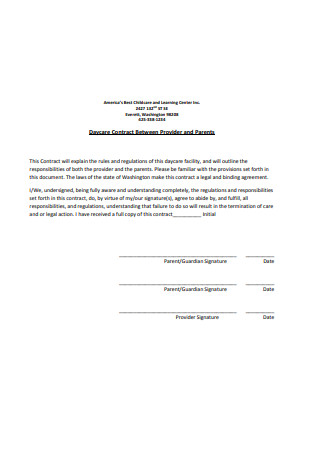
Daycare Contract Between Providers and Parents
download now -
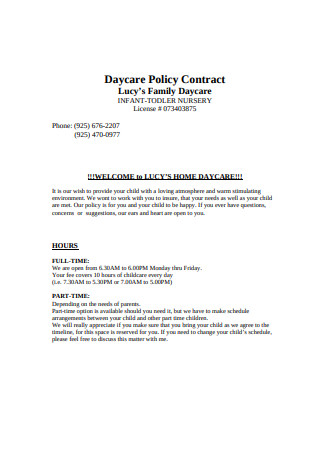
Daycare Policy Contract
download now -
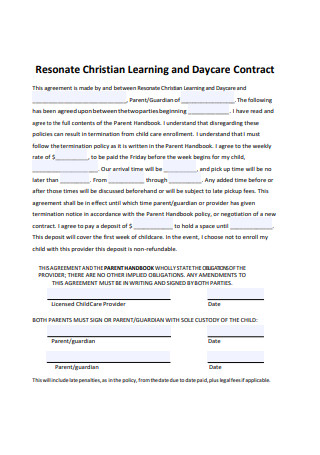
Daycare Contract Format
download now -
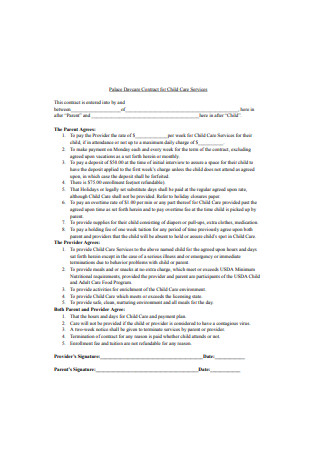
Sample Daycare Contract
download now -
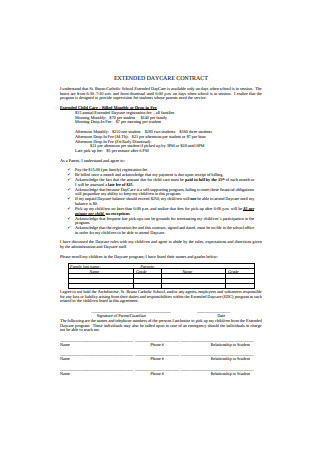
Extended Daycare Contract
download now -
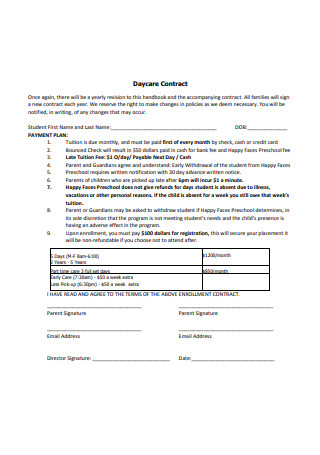
Basic Daycare Contract
download now -
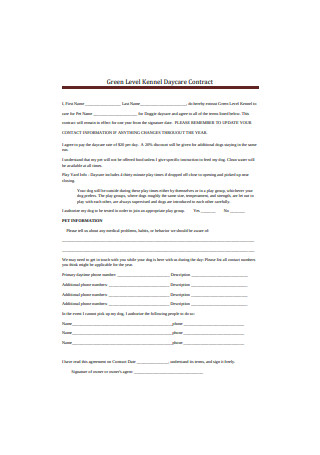
Standard Daycare Contract
download now -
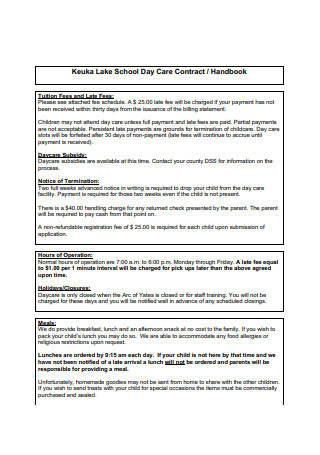
School Day Care Contract
download now -
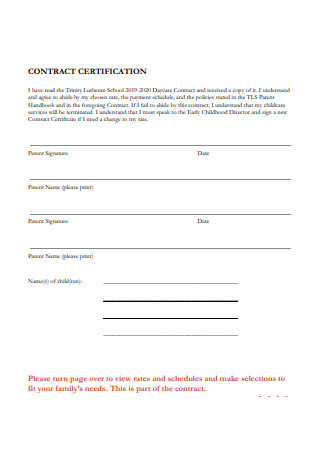
Daycare Contract Certification
download now -
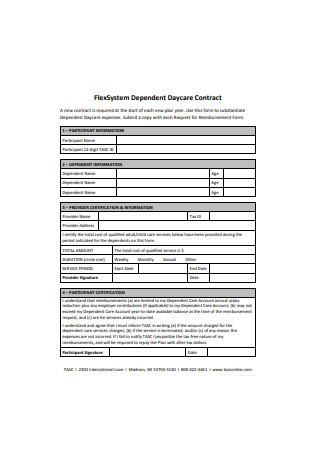
Formal Daycare Contract
download now -
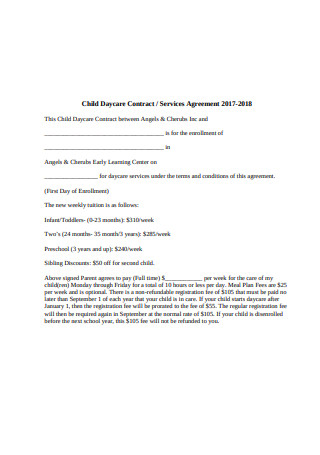
Child Daycare Contract
download now -
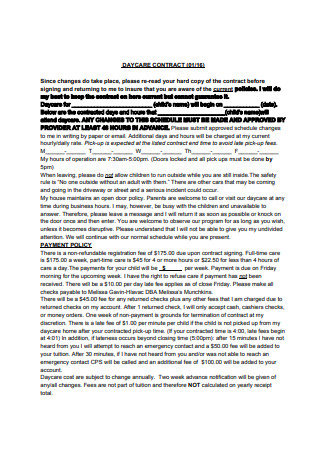
Daycare Contract Example
download now -
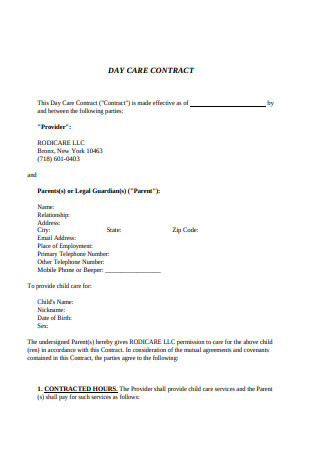
Sample Daycare Contract Format
download now -
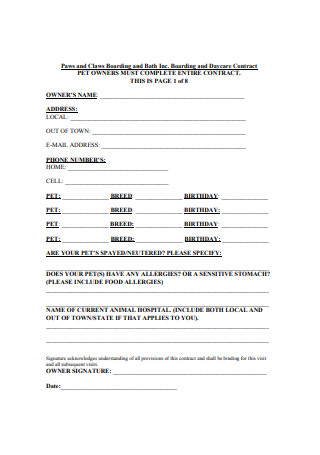
Daycare Contract Sample
download now -
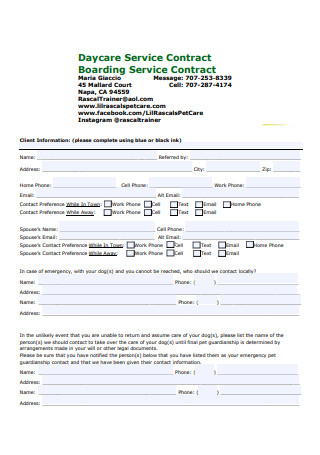
Daycare Service Contract
download now -
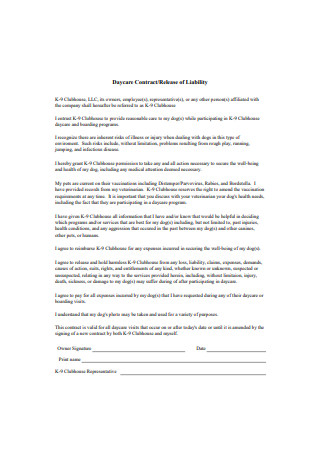
Basic Daycare Contract Format
download now -
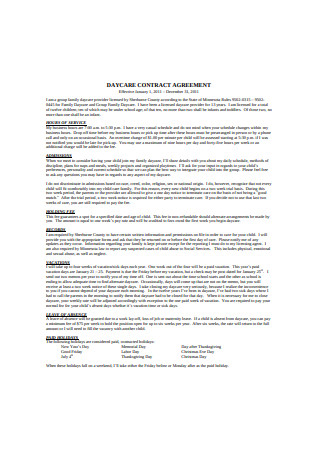
Daycare Contract Agreement
download now -
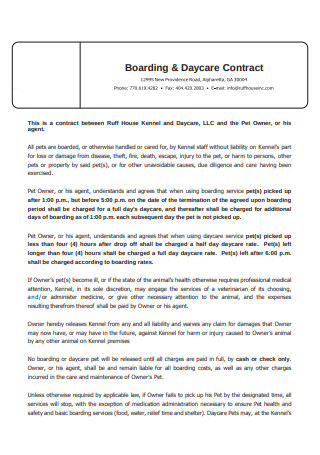
Standard Daycare Contract Example
download now -
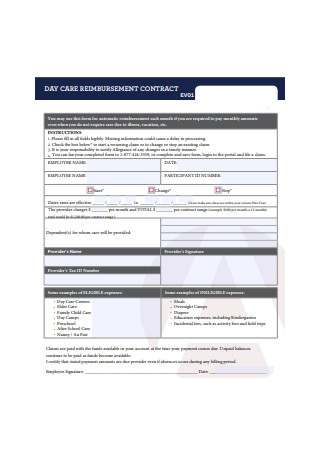
Daycare Reimbursement Contract
download now -
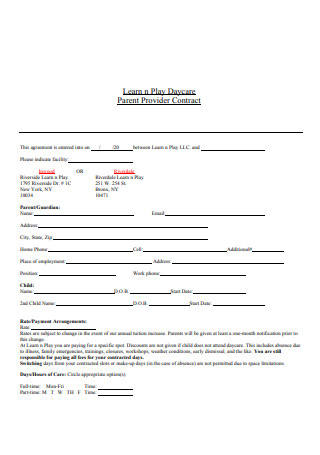
Daycare Parent Provider Contract
download now -
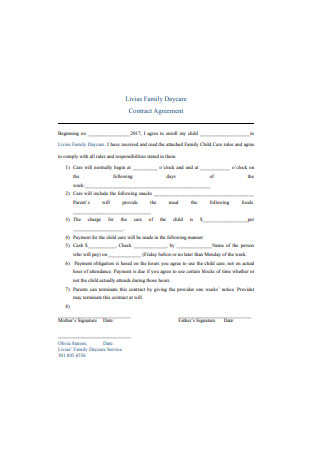
Printable Daycare Contract
download now -
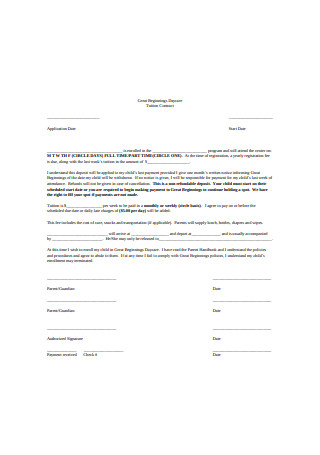
Daycare Tuition Contract
download now -
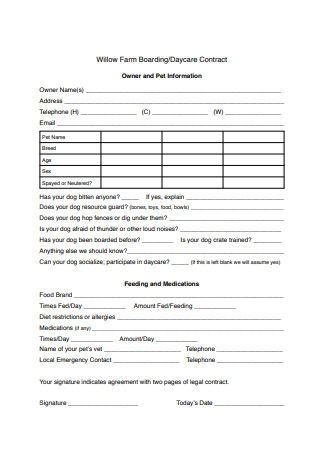
Sample Daycare Contract Example
download now -
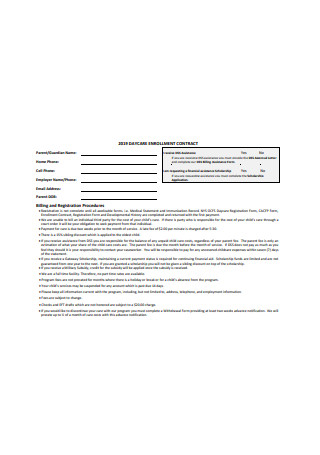
Daycare Enrollment Contract
download now -
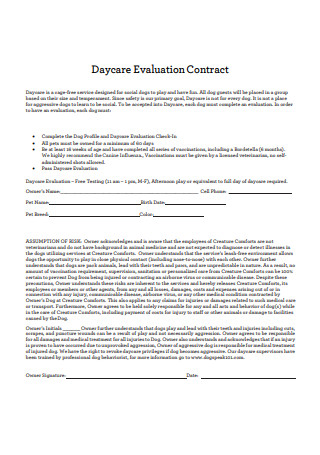
Daycare Evaluation Contract
download now -
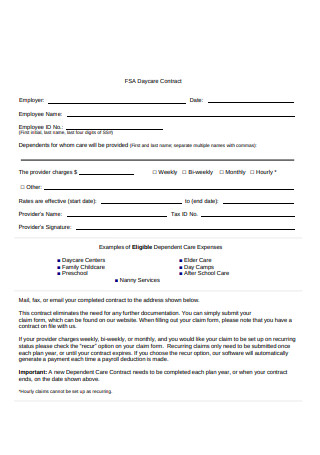
Standard Daycare Contract Format
download now -
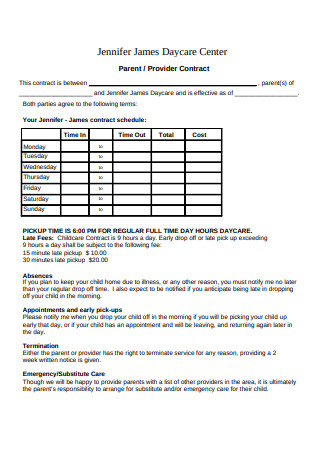
Basic Daycare Contract Example
download now -
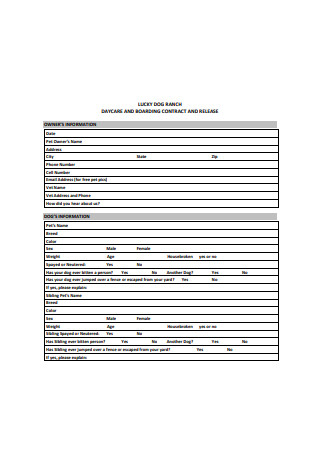
Daycare and Boarding Contract
download now -
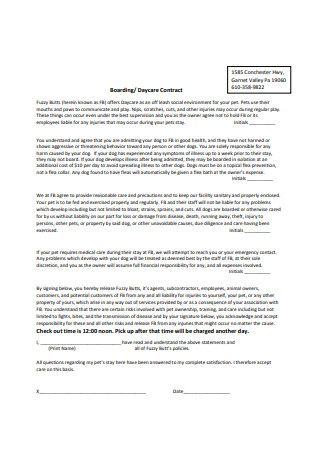
Printable Daycare Contract Format
download now -
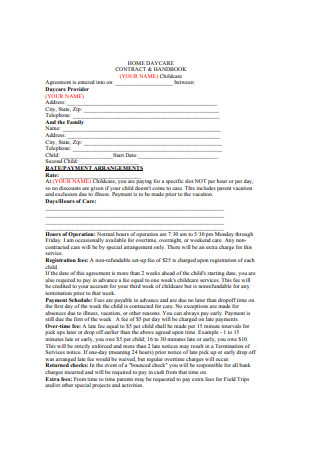
Home Daycare Contract and HandBook Template
download now -
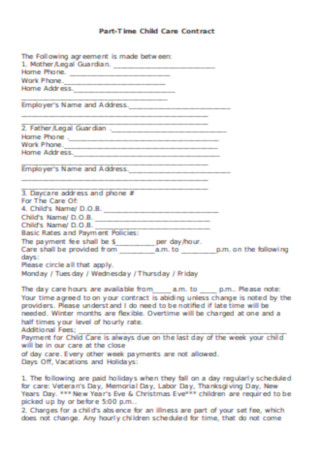
Part Time Child Care Daycare Contract
download now
FREE Daycare Contract s to Download
30+ Sample Daycare Contracts
What is a Daycare Contract?
Responsibilities of a Daycare Center
What are the Benefits of Sending Children to Daycare?
How to Draft an Effective Daycare Contract?
FAQs
When should your child start daycare?
For how long should your child stay at daycare?
Is daycare better than staying at home?
What to look for from a daycare provider?
How does daycare affect child development?
What is a Daycare Contract?
Establishing a daycare center around the neighborhood is not a bad idea. In fact, most parents requiring a person to watch over their kids while they work with their everyday job is an excellent factor for your daycare center to capture your target market. But besides from preparing your facilities and hiring enough staff to facilitate your daycare, creating a contract is the last piece to complete the puzzle.
Every parent wants what is best and safe for their children, and having a contract helps you legally close the deal. Seeing all your daycare policies, terms, and conditions, puts parents at ease, knowing that your center is a reliable environment for their kids. If you are wondering what a daycare contract is, a daycare contract is a legally binding document between a daycare center and the parent of a child who wishes to avail of the daycare’s services. This document details and recognizes the rights and responsibilities of both parties involved with the agreement, specifying the terms and conditions of the daycare center, its standard rates, payment policies, and termination procedures. Thus, clearing out any ambiguity between you and your potential clients.
Responsibilities of a Daycare Center
Daycare is not all about babysitting your client’s children. Instead, it is a place where children may learn and develop physically, emotionally, mentally, and socially as an individual through various experiences. With most parents being busy at work, children are not given many chances to enhance their skills and abilities in the comfort of their homes. However, daycare providers shall try their very best not only to help children bring out their unique gifts but also to offer them a second home while their parents are away.
Listed below are a few examples of a daycare’s responsibilities to give assurance to parents that their children are at the right hands.
What are the Benefits of Sending Children to Daycare?
Busy parents may not have enough time to watch and teach their children at home, which is why they rely on daycare centers to help them. Daycare centers are beneficial to both parents and children, for not only do they watch over the kids, but they also help them develop their emotional, social, and cognitive skills at an early age to prepare them for their future schooling. Some of these benefits include:
Promotes Their Emotional and Social Development
Exposing a child to a new environment may be daunting at the beginning. Some may need some time to cope up, but their exposure to new experiences and by connecting with their peers helps them to develop their emotional and social skills. This development allows them to manage their frustration and interaction with other people, encouraging them to be curious with their surroundings as well as to improve their behavior as an individual.
Enhances Their Social Responsibility
By allowing children to cooperate with their peers during activities and by making them participate with other community events, children improve their social responsibilities. As they learn new tasks at the daycare center, they can take good care of themselves, can respect their environment and the people around, and of course, they can develop a sense of pride and self-worth.
Offers Them Structured and Fun Learning
Learning a new task can be annoying or frightening to some children. Some may not even have the patience to complete an activity. Despite these issues, daycare centers can ease the children’s struggles in learning by providing structured and fun learning ways of teaching kids.
Develops Their Cognitive, Reading, and Language Skills
Children learn the fastest and absorb the most knowledge at the age of six. Between the ages of three and five, children can gain an average of 900 to 2,500 words. Daycare centers offer various conversational games and other cognitive, reading, and language activities that promote their skills.
Encourages Their Curiosity
Children are a curious bunch. Whatever they see or hear, they would always ask adults for answers. It has been their nature to be curious, and daycare centers provide great opportunities to boost a child’s interest and ideas. One good example is storytelling activities, which use a line between reality and make-believe events that may fuel the children’s curiosity and imagination.
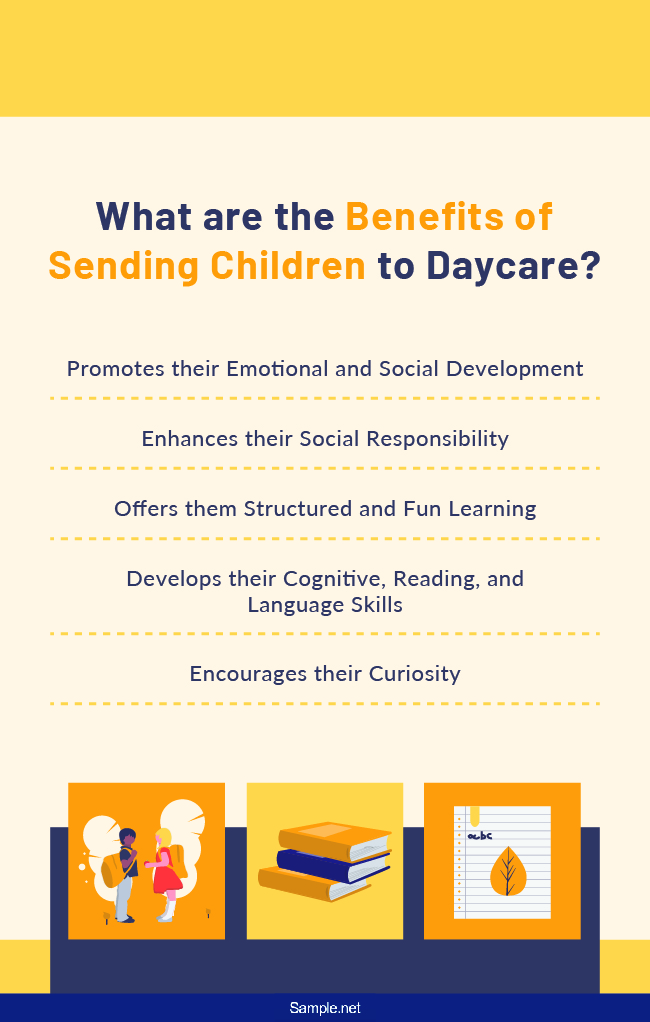
How to Draft an Effective Daycare Contract?
Contracts are essential in legally binding two parties with the terms and conditions agreed upon, establishing both your legal obligations and fixing your rights and duties following your agreement. At the same time, this document protects both you and your client from possible ambiguities.
Knowing the different parts and purposes of your daycare contract shall allow you to specify your terms and conditions, your standard rates, as well as your termination process upon the request of your services. Learn more about how to draft an effective daycare contract and read these few steps below:
Step 1: Identify the Parties Involved in the Agreement
Specify each party involved with your transaction and state the purpose of your contract. Provide the details of your daycare center, such as your name, address, and other contact details. The same goes for your potential clients. Indicate the name of their child, its age, birthday, and other essential identification data.
Step 2: State Your Terms and Conditions in the Contract
Every contract has its terms and conditions. State your terms of services and align them with what you may offer to your clients. You may detail the number of hours their child may stay in your daycare, your payment rate, your responses to emergencies, as well as your termination process in this part of the contract.
Step 3: Specify Your Daycare’s Responsibilities and Policies
As the facilitator, it is your daycare’s duty and responsibility to take good care of the children. Specify your policies and responsibilities for each child. You may write the activities and lessons the children may perform during their stay in your daycare, as well as the number of children being handled by your facilitator per session. Be clear with your content and make it understandable to your clients.
Step 4: Indicate Your Standard Rates and Payment Policies
Indicate your standard rates and payment policies in your daycare contract. How do you wish to get paid? Weekly? Monthly? Make sure to specify when and how they may pay you. At the same time, describe how you may respond to late fees, late payments, and late pickups. You may use the phrase “on or before” preceding the deadline. As much as possible, provide a full detailed description of your services.
Step 5: Add the Rest of the Important Details in Your Contract
Include other essential details in your contracts, such as your termination clause or your required weeks of notice in case the parents plan to leave for the weekends. Make sure to indicate the symptoms or illnesses the child has for you to send them home, as well as when your daycare center will be closed for the holidays. Once you’re done, review your document and add a signature area for you and your client to sign.
FAQs
When should your child start daycare?
Daycares begin accepting children at least from the ages of 12-months-old, wherein the daycare should have at least two trained adults to facilitate a group of six to eight infants. Furthermore, daycare providers also accept young toddlers (1-2 years old), older toddlers (2-3 years old), and preschoolers (3-5 years old).
For how long should your child stay at daycare?
Having your child stay too long in daycares can be stressful for their part, especially for children who fall under the ages of three and below. At the same time, some children experience separation anxiety. For these types of cases, it is recommendable to have children stay in daycares for half-days and then slowly extend their time once they show signs of comfortableness with the group.
Is daycare better than staying at home?
Staying at home is the best option for children from age three and below since they experience less stress, less illness, and fewer behavioral issues. However, home care is not always possible, with most parents required to work and do other important tasks during the day. Regardless, once the child reaches the ages three and above, daycares and preschool are beneficial to their development.
What to look for from a daycare provider?
Before you entrust your child to a daycare center, it is crucial to check whether the environment is clean, safe, and ideal for your child. Make sure that the ratio of children and facilitators are of an adequate number. Lastly, see to it that the daycare is licensed, has the proper facilities, and is composed of staff that is qualified for the job.
How does daycare affect child development?
Daycares provide various measurable effects to the children’s development; some may be positive and some negative. According to Psychology Today, the type of environment, treatment, and the quality of care given by daycares to children influences many aspects of their development, this includes their cognitive, behavioral, and social skills.
Psychology Today reports that a child’s early stages of development and experience are crucial for their overall development in becoming an adult. Their exposure to a positive environment and the bond they form with their family and friends profoundly affects their physical, cognitive, emotional, and social development. Furthermore, at the age of six, a child’s brain works like a sponge, absorbing as much information as it can from its surroundings effortlessly and indiscriminately. If children are not exposed to proper education and environment, they may develop slower compared to other children. Thus, most families rely on daycares to handle and guide their kids during these periods.
